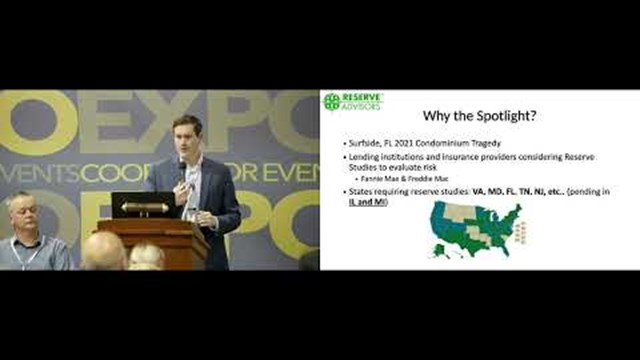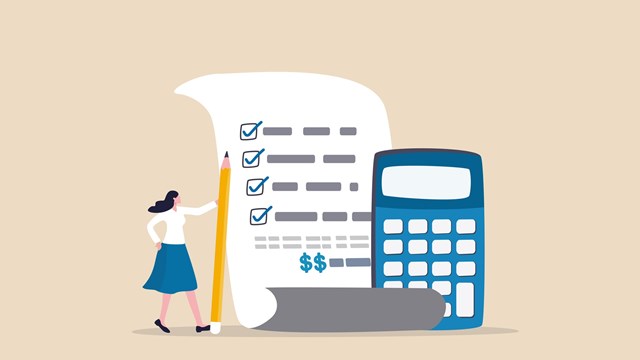Congratulations—you’ve just been elected to your HOA’s board of directors, and given your first monthly financial packet. Maybe your first thought is, “This is all so confusing—thank goodness I’m not the treasurer, and don’t have to understand it.” This is what so many new board members say, but the truth is that regardless of position, the entire board is responsible for the financial information of your association. Every board member has a fiduciary responsibility over the financial information, and a legal obligation to safeguard the assets of your association. As a member of your board, you need to understand your community’s plan for the current year (which is your budget), your strategic plan for the future (which is your reserve study), and your financial information so that you can make sound business decisions.
What’s Your BASIS OF ACCOUNTING?
In order to understand your building or HOA’s financial information, every member of your board must first understand the basis of accounting upon which your financials operate. Namely, does your association use a cash, modified cash, or accrual basis of accounting?
A cash basis of accounting is similar to a checkbook, since you recognize income when received and expenses when paid. The only asset on your balance sheet is cash.
A modified cash basis recognizes expenses when paid, but can recognize income when billed instead of when received, record loans as a liability, or capitalize property and equipment that the association has title as an asset on the balance sheet. Many management companies use the modified cash basis of accounting.
An accrual basis of accounting recognizes income when billed or earned, and expenses when incurred. This is the preferred method of accounting for most HOAs, since it shows the association’s actual financial position on a specific given date. That said, most monthly financials are on the cash or modified cash basis, since monthly financials are usually sent out too late to record the accounts payable each month for an accrual basis.
If your association’s monthly financials are not on the accrual basis, the board should have an annual third-party financial statement prepared by a CPA. Please check your bylaws and your state requirements. Your HOA’s lending institution may require a CPA accrual basis financial report as well. The CPA’s financial report requirement could be a compilation, review, or audit. The requirement could also state that financial statements must be prepared using generally accepted accounting principles (GAAP), which include a Balance Sheet, Statement of Income and Expense, statement of cash flows, and footnote disclosures.
Your Monthly Financial Packet
So what’s in the typical financial packet? Many boards receive this information every month and either don’t look at it, or look at it and don’t understand what’s important and what they should be reviewing. In short, your monthly financial packet is the key to preparing your association’s budget, and making sound business decisions. The packet should include the following items: balance sheet and income and expense statement, accounts receivable, operating and reserve bank statements and reconciliations, cash disbursements and cash receipts journals, and a general ledger. If an association is on the accrual basis of accounting, their packet will also include copies of the invoices paid during the month and an accounts payable report. Let’s take a look at the importance of each of these reports.
Accounts Receivable – Reviewing your aged accounts receivable each month to monitor your delinquent receivables is crucial to maintaining your HOA’s cash flow. Does your association have a collection policy, and are you following it? Review your declaration and bylaws to ensure you’re in compliance. If your association budgeted for bad debts, compare your budgeted amount to your actual write-offs. If your association is on a modified cash basis or accrual basis, ensure the total of the detailed aged accounts receivable report agrees with the amount of the accounts receivable and prepaid assessments on the monthly financial balance sheet.
Check Register & Cash Receipts
Journal – Review the check register to make sure that all checks are organized by check number. Review the payees to ensure that these are approved vendors. If you have an approval policy for expenditures over a certain dollar amount, review these payments to make sure that they were properly approved. If invoices are included in the packet, review them to verify that the invoices are indeed for your association, and compare the invoice details to the cash disbursements journal to make sure the correct amount was paid to the correct vendor. Review cash receipts for any unusual deposits. Trace the receipts to the bank statement and bank reconciliation to see if all of the deposits cleared in the month, or are in transit. Trace the amounts on the receipts and disbursements to the activity recorded in the general ledger for the corresponding cash accounts.
Bank Statements and Reconciliations - As the name suggests, the bank reconciliation squares the bank statement’s month-end balance with the association’s monthly ending cash balance on the general ledger and balance sheet. Board members should review the reconciliations with the corresponding bank statements, along with the cleared checks for the check number, payee, and amount. If there are any old checks outstanding, inquire as to why they are still outstanding. Items older than a month should be investigated. Review deposits in transit. All deposits in transit at the end of each month should clear at the beginning of the next month. If there are transfers between accounts, verify that the transfer was indeed taken out of the one account, and that it was in fact deposited into the other account—and if not, fully investigate the discrepancy. Finally, make sure the reconciled balances agree with the cash in the general ledger and financial statements.
General Ledger – This is one of your HOA’s most important financial reports. The general ledger shows you the community’s expenditures and income in detail each month. Do these income and expenditures—especially large capital expenditures—make sense, compared to what the board has approved? Review the accounts in the general ledger to make sure that the classification of expenditures and deposits are correct. Review the cash accounts to review the activity for the month, especially to determine if your reserve expenditures were paid out of your reserve cash account, and that your reserve monthly income was deposited into the reserve cash account. Also, determine if there were transfers between the reserve cash accounts and the operating cash accounts. Again, these cash accounts should agree with your bank statements and reconciliations.
Accounts Payable Report – This report should be reviewed to determine what invoices have not been paid at the end of the month, and why. Review this report to determine if there are any reserve or operating fund projects that have been completed but not paid, or if progress payments are due on projects but not paid by the end of the month.
Financial Statement – Balance Sheet - The balance sheet shows the association’s financial position at a specific date. As previously discussed, the assets and liabilities on the balance sheet should agree with the monthly financial reports. If they do not agree, review the general ledger accounts to determine if there was an error. If the balance sheet is on the accrual basis or modified cash basis, review any additional assets or liabilities and inquire as to why they are recorded.
Financial Statement – Income and Expense Statement – The income and expense statement shows the association’s financial activity during a specific period of time. Each month there should be a review for any unusual income or expenses that have not been budgeted for. Next, compare the actual income and expenses each month and year to date with your budget. If there are any material differences, determine why by reviewing the general ledger for these specific income and expense accounts. It is much easier to compare actual to budget if your financials are on an accrual basis, since your budgets are prepared based upon the income billed or earned and expenses incurred. Finally, review the reserve fund expenses and compare these expenses to your reserve fund projects. Make sure these expenditures were paid by the proper fund cash by reviewing the reserve fund cash account in the general ledger. Understanding the income and expense statement will also help with the preparation of the budget for the next year.
If everyone on your board commits to reviewing—and understanding—your community’s monthly financial package, the entire board will be on a far better footing to make the important decisions necessary to maintain your association’s financial health. Remember, the entire board is responsible for the financial information of the association, and an active, financially literate board is key to the success of the association.
Steven Silberman is a CPA and partner with PBG Financial Services PLLC, a financial services firm with offices in Chicago and Northbrook, Illinois.










Leave a Comment